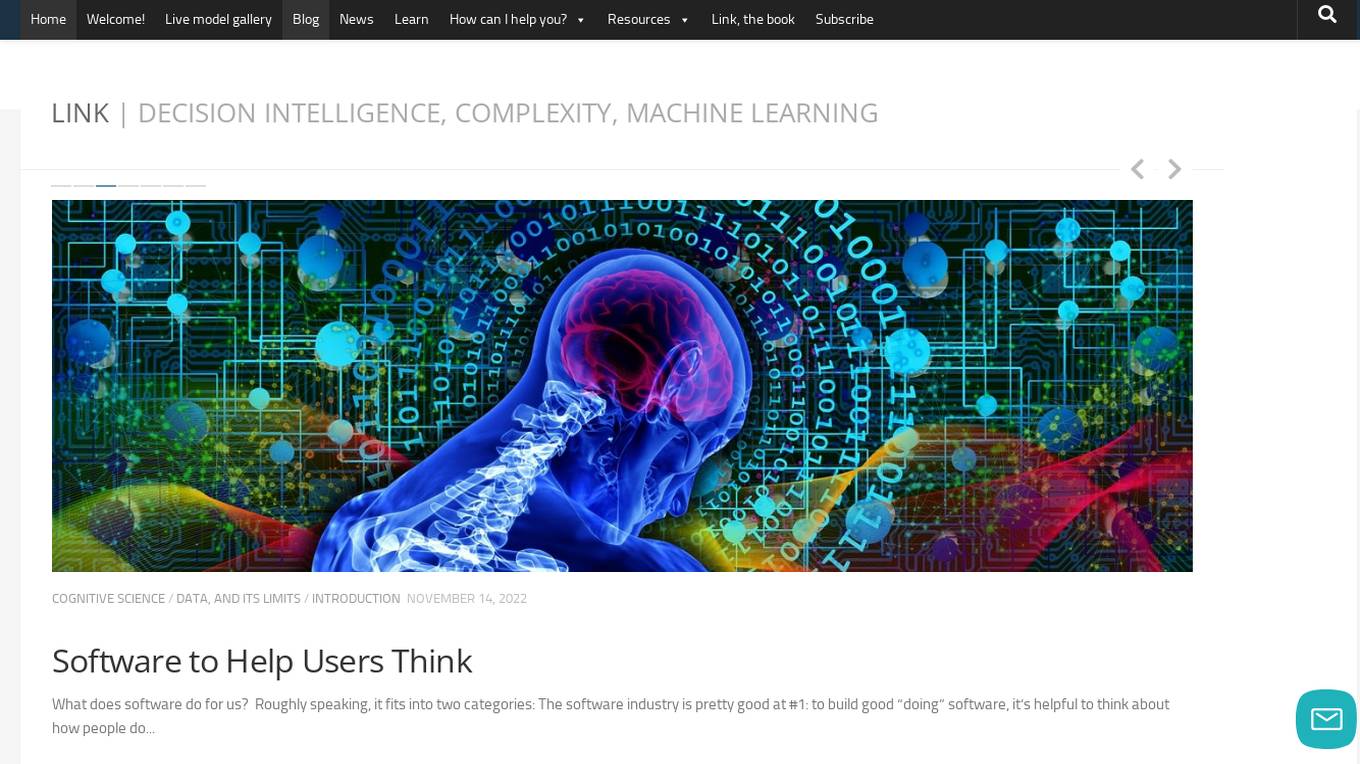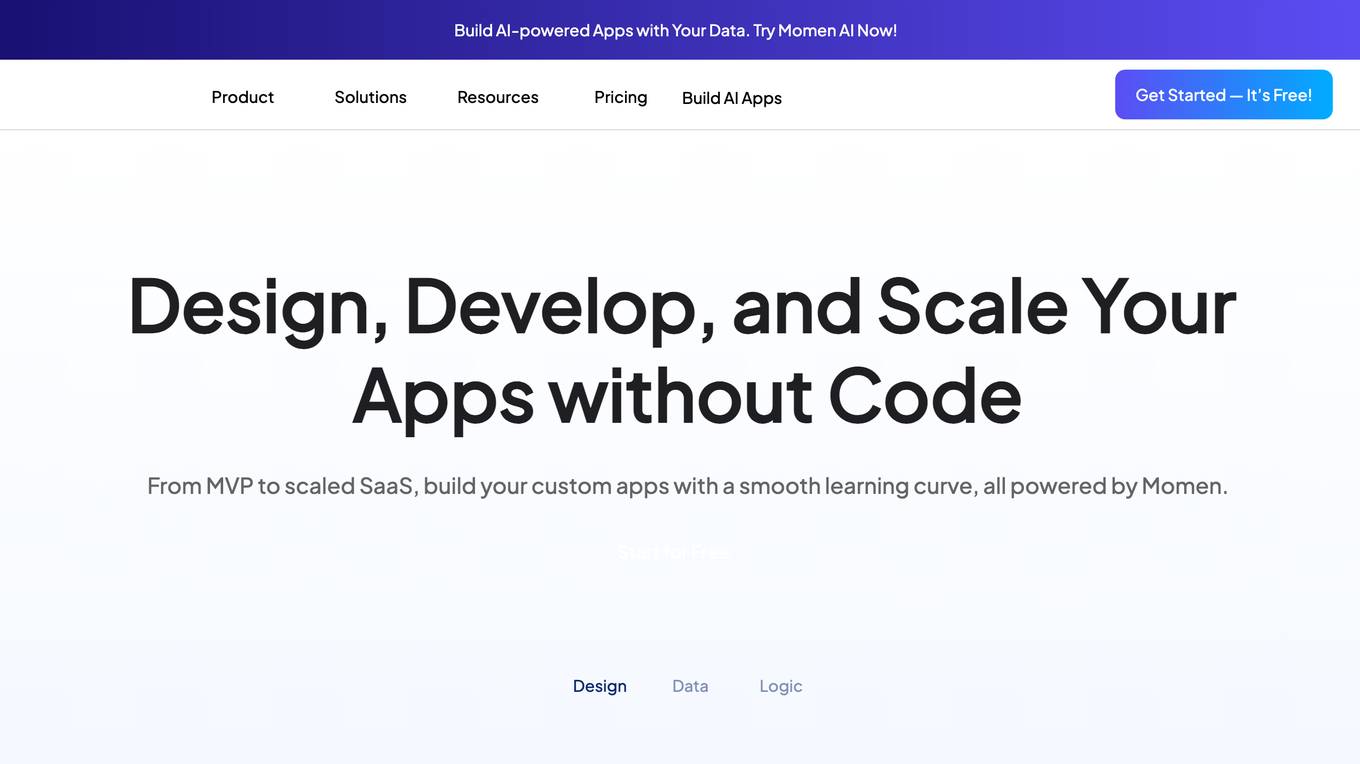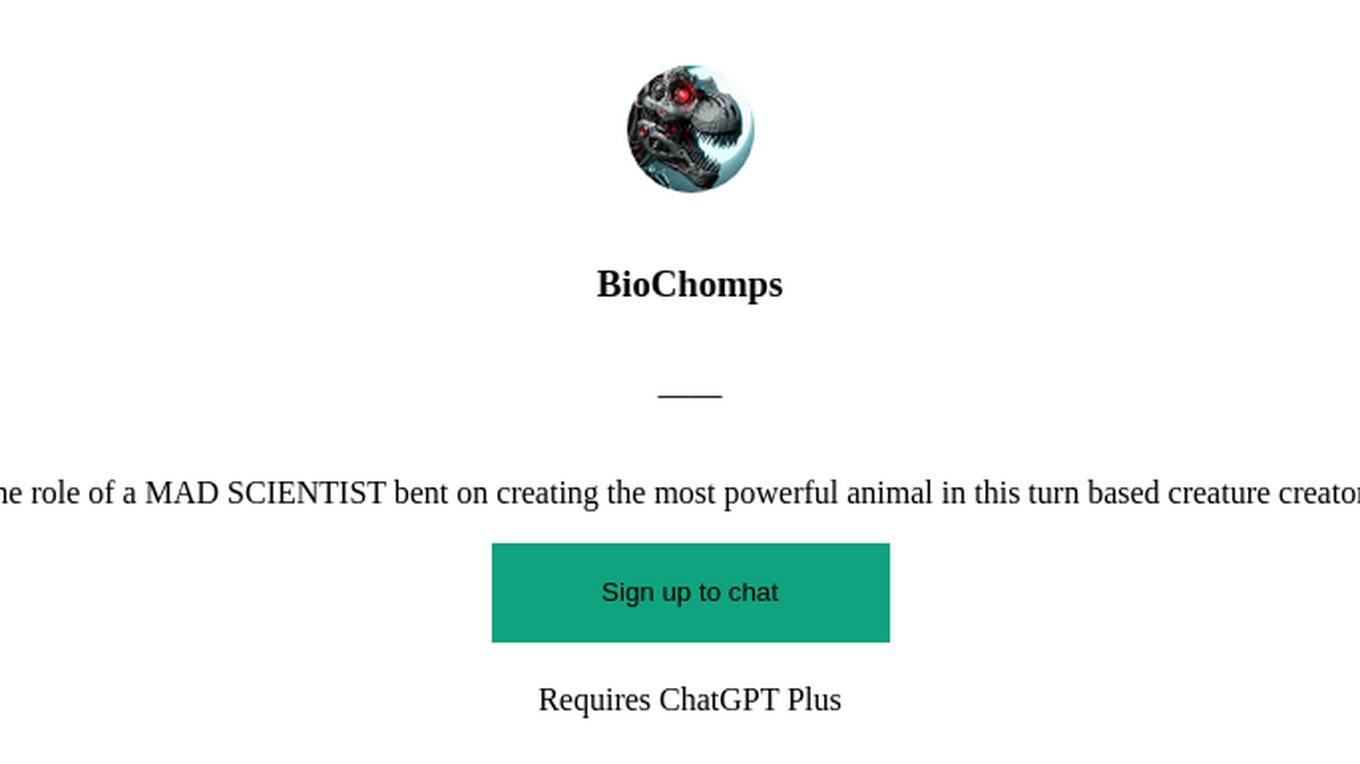Best AI tools for< Assure Data Quality >
4 - AI tool Sites

CloudResearch
CloudResearch is an online platform that offers tools for online research and participant recruitment. It provides academic and market researchers with immediate access to millions of diverse, high-quality respondents worldwide. The platform is designed to help researchers recruit vetted online participants, manage complex research projects, and elevate data quality. CloudResearch also offers AI-powered solutions for survey research, participant engagement, and data quality assurance.

Link
Link is a Decision Intelligence platform that offers Agile Applied AI and Machine Learning solutions. The platform provides workshops on AI/ML/DI, Decision Intelligence Solutions, and Assured Agile AI Resources. Users can access live model galleries, blogs, news, and learn about Decision Intelligence Models. Link aims to help business leaders prepare for the AI paradigm shift by offering tools and resources for understanding and applying artificial intelligence effectively.

Momen
Momen is a platform that allows users to build web applications without the need for coding. From designing to developing and scaling apps, Momen offers a smooth learning curve for users to create custom apps. The platform provides features such as dynamic canvas, live preview, interactive animations, and reusable components. With Momen, users can clarify user journeys, unleash their creativity, and build feature-rich apps with ease. The platform also ensures predictable costs, assured scalability, and advanced collaboration workflows for million-user projects. Momen AI 2.0 enables users to build AI agents. Additionally, Momen offers SEO controls, AI app development, exclusive programs for education, tailored solutions for content creators, and various resources and support options.

JourneyPlan
JourneyPlan is an AI-powered travel planning platform that creates personalized trip plans based on your interests, preferences, and budget. It uses cutting-edge AI technology to optimize every aspect of your trip, from activities and dining to transportation and accommodations. With JourneyPlan, you can rest assured that every detail of your trip has been carefully planned with you in mind. And the best part? It's completely free!
0 - Open Source AI Tools
1 - OpenAI Gpts

BioChomps
Assume the role of a MAD SCIENTIST bent on creating the most powerful animal in this turn based creature creator AI battler!